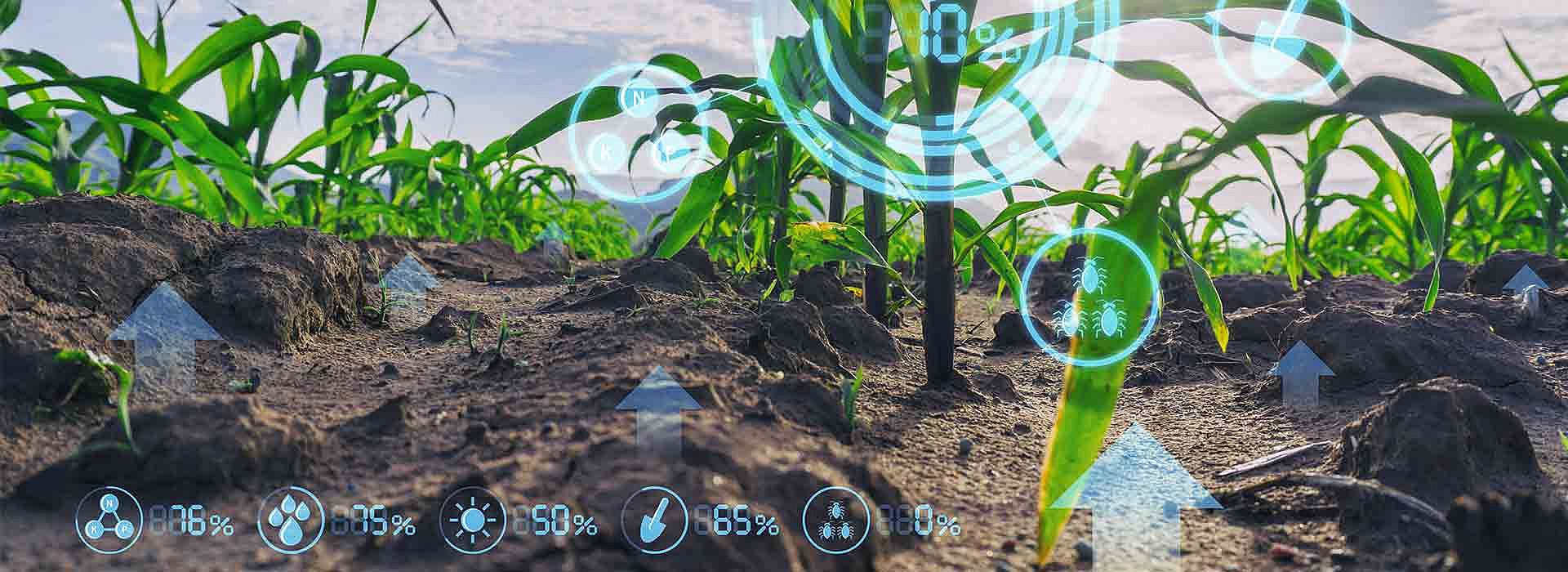The crucial competitive edge: knowledge and speed
In farming, a decisive competitive factor is the availability – particularly on short notice - of comprehensive and up-to-date information across all areas of the agricultural value chain, which can only be achieved through a combination of digitalization and independent consulting. However, with the rising number and complexity of regulations, plus the growing demands of the market for product quality, the time it takes to find relevant information is constantly increasing. To date, farmers and their consultants have seldom had access to structured and digital documentation such as government regulations, industry literature or farming data.
With this in mind, the focus of the FarmExpert 4.0 project is the integration of diverse agricultural data from manufacturer-independent, government or private institutes into a formal and uniform basis of knowledge. The information can be available to Bavarian farmers and consultants in an automated and simple form and even be retrieved with mobile end user devices. To achieve this goal, fortiss worked together with the Bavarian Center for Crop Production (Landeskuratorium für pflanzliche Erzeugung – LKP) and the Weihenstephan-Triesdorf University of Applied Sciences (HSWT) to develop a decision support system. The project, which was funded by the Bavarian State Ministry for Food, Agriculture and Forestry (StMELF), ran for a period of four years. The project partners presented their results at the ministry at the end of October 2020.
Fertilizer: knowledge on-the-go
Especially when questions related to crop production arise, farmers or consultants often have to manually search for information in data sources and then combine it. In one example, researchers selected a practical application scenario for calculating fertilizer recommendations and developed a decision support system for the nitrogen-based fertilization of winter wheat crops. The system’s user interface displays the relevant and current information at a glance to help the farmer make a location-specific fertilization decision. The system also analyzes individual farm and location data in order to suggest how much fertilizer should be applied and at what point in time, among other recommendations.
In addition to the presentation of relevant information, regional experience and specialist expert knowledge of experienced advisors should also be mapped for the use case and thus made available to the user. Farmers who are uncertain about their fertilization decision or want confirmation of their approach can use the formalized expert knowledge via the decision support system to achieve well-founded and site-adapted fertilization and thus increased nitrogen efficiency in simple use cases, even without personal contact with their advisor.
On the way to reaching this result, the researchers first developed a prototype decision support system with a web GUI (open-source content management system) and then evaluated it with farming models. Through surveys and discussions with experts, farmers and consultants, the findings were then converted to a machine-readable form, thus making the agricultural expertise available to the entire digital network and universally suitable for processing.
Independent expert network enables digital consulting
This research project has successfully demonstrated how information can be made available to farmers and consultants in digital form by bundling and linking it in a meaningful and professional manner.
With its research contribution, fortiss has made it possible to create an underlying strategy for systematically making existing and future digitalization technologies available to the agriculture industry. Under the leadership of field of competence manager Dr. Markus Rickert, researchers digitalized the highly heterogeneous agriculture knowledge from various data sources – including analog sources – and processed it in machine-readable form. In order to handle the data complexity, researchers utilized the web ontology language (OWL) formal description language. It provides a semantic vocabulary for modeling specialized knowledge unambiguously and machine-understandably in uniform data structures in the form of ontologies. With the help of ontologies, a hierarchy of concepts and relationships is created in order to be able to describe a domain. The OWL ontologies are loaded into the central knowledge base of the decision support system for storage, further processing and querying.



